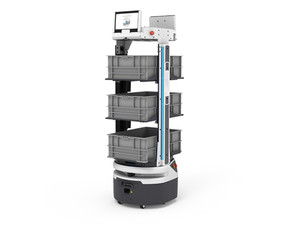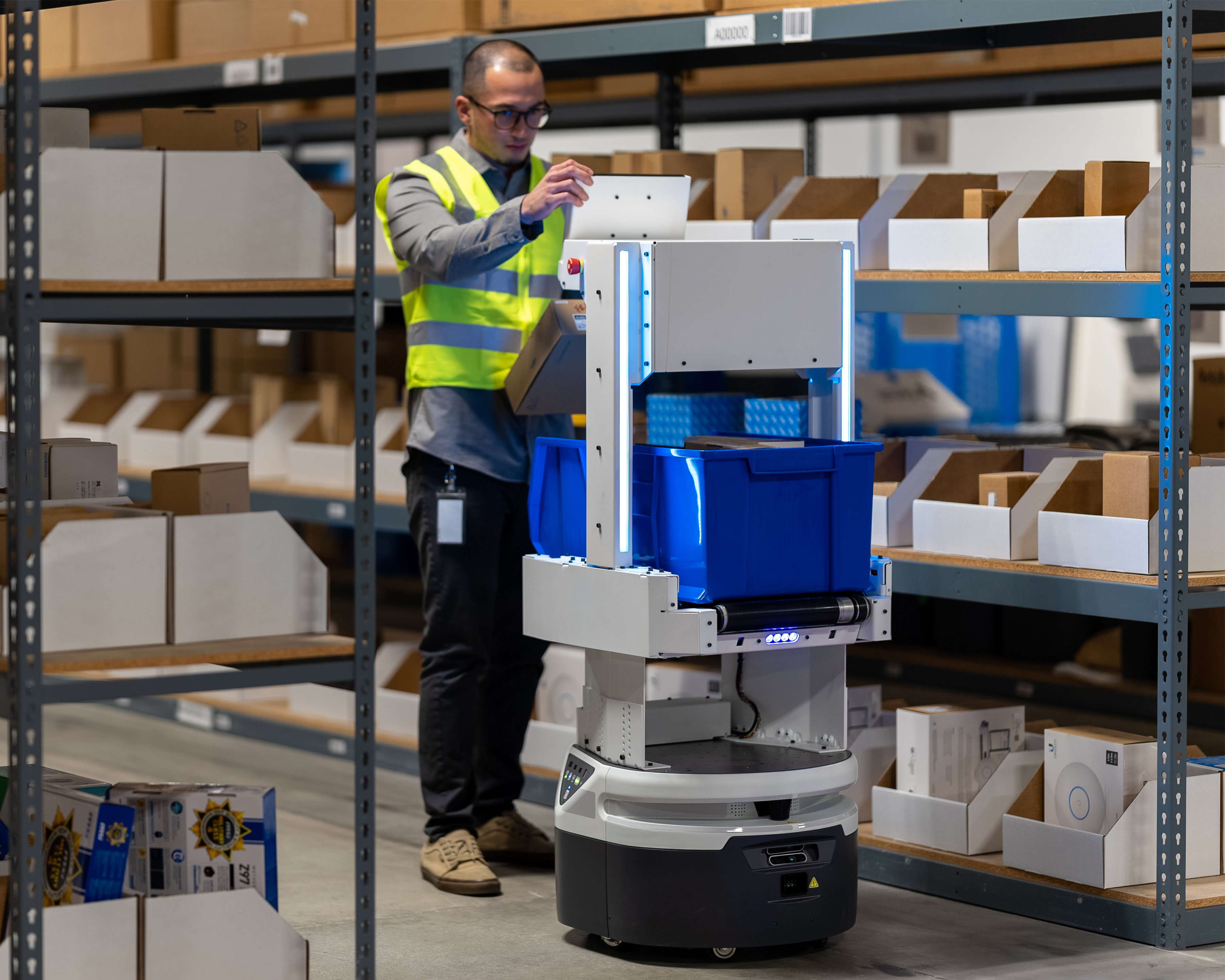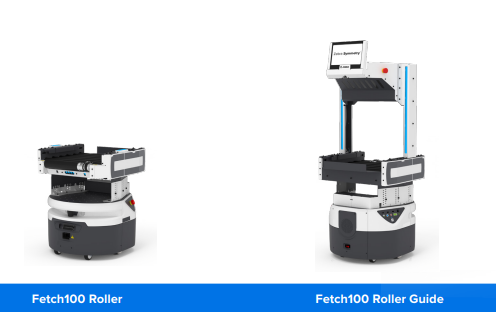
Zebra Robotics Fetch100 Flex Series
Zebra Robotics Automation



Harness Flexibility
Fixed infrastructure occupies valuable floor space and is both costly and time consuming to modify when changes arise. AMRs are a flexible alternative for operations looking to eliminate linear bottlenecks and reclaim floor space.
Connect Islands of Automation
Automated substations such as CNC machines and AS/RS are essential in maximizing production capacity, but are often isolated from one another. Our AMRs bridge the gap between stations by autonomously delivering work-in-progress materials.
Reduce Waste and Maximize Value
Supports lean manufacturing by autonomously transporting raw, WIP, and finished good materials to and from assembly lines or work cells, enabling your highly-skilled technicians to focus on value-added tasks instead of waiting for material.

Conveyor systems have dramatically increased industrial efficiency for many years. However, these fixed assets are hard to adapt to today’s ever-changing material transport requirements. Zebra's Fetch100 Roller solution brings adaptability and increased levels of automation in these conveyor environments.